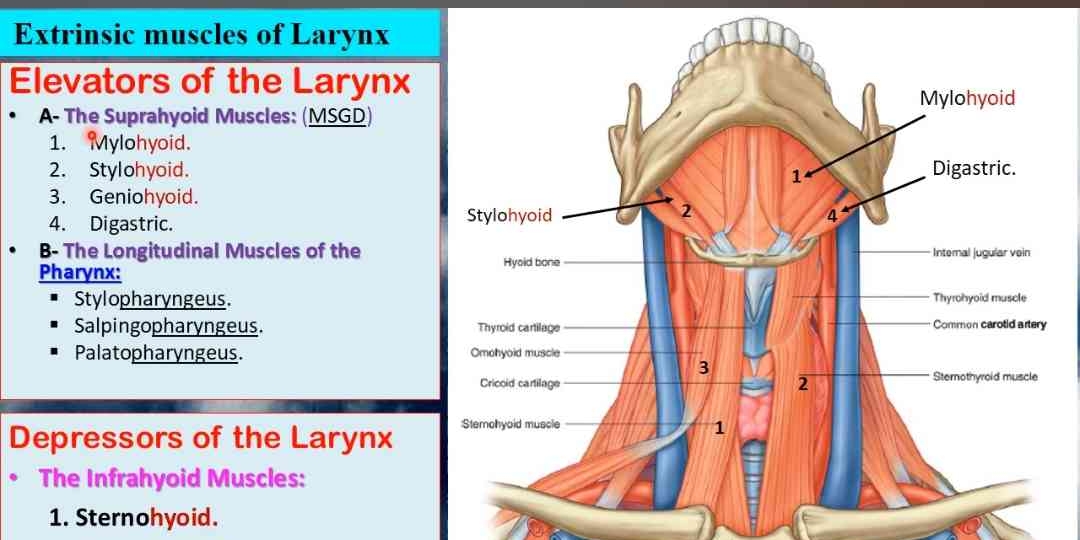What are the extrinsic muscles of the larynx and their functions?

Understand the Problem
The question seems to be about the extrinsic muscles of the larynx, specifically focusing on the elevators and depressors of the larynx, including terms like 'mylohyoid,' 'stylohyoid,' 'geniohyoid,' and 'digastric.' It aims to explain muscle functions and anatomical relationships.
Answer
Elevators: suprahyoid and longitudinal muscles. Depressors: infrahyoid muscles.
The extrinsic muscles of the larynx are divided into elevators and depressors. Elevators include the suprahyoid muscles (mylohyoid, stylohyoid, geniohyoid, digastric) and longitudinal muscles (stylopharyngeus, salpingopharyngeus, palatopharyngeus). Depressors are the infrahyoid muscles like the sternohyoid.
Answer for screen readers
The extrinsic muscles of the larynx are divided into elevators and depressors. Elevators include the suprahyoid muscles (mylohyoid, stylohyoid, geniohyoid, digastric) and longitudinal muscles (stylopharyngeus, salpingopharyngeus, palatopharyngeus). Depressors are the infrahyoid muscles like the sternohyoid.
More Information
Extrinsic muscles are responsible for moving the larynx as a whole, aiding in functions like swallowing and speech.
Tips
Ensure not to confuse extrinsic with intrinsic muscles, which control vocal cord position.
Sources
- TeachMeAnatomy - Muscles of the Larynx - teachmeanatomy.info
- Radiopaedia - Extrinsic muscles of the larynx - radiopaedia.org
AI-generated content may contain errors. Please verify critical information